Can Cats Drink Lactose-free Milk? Unveiling The Myths And Facts

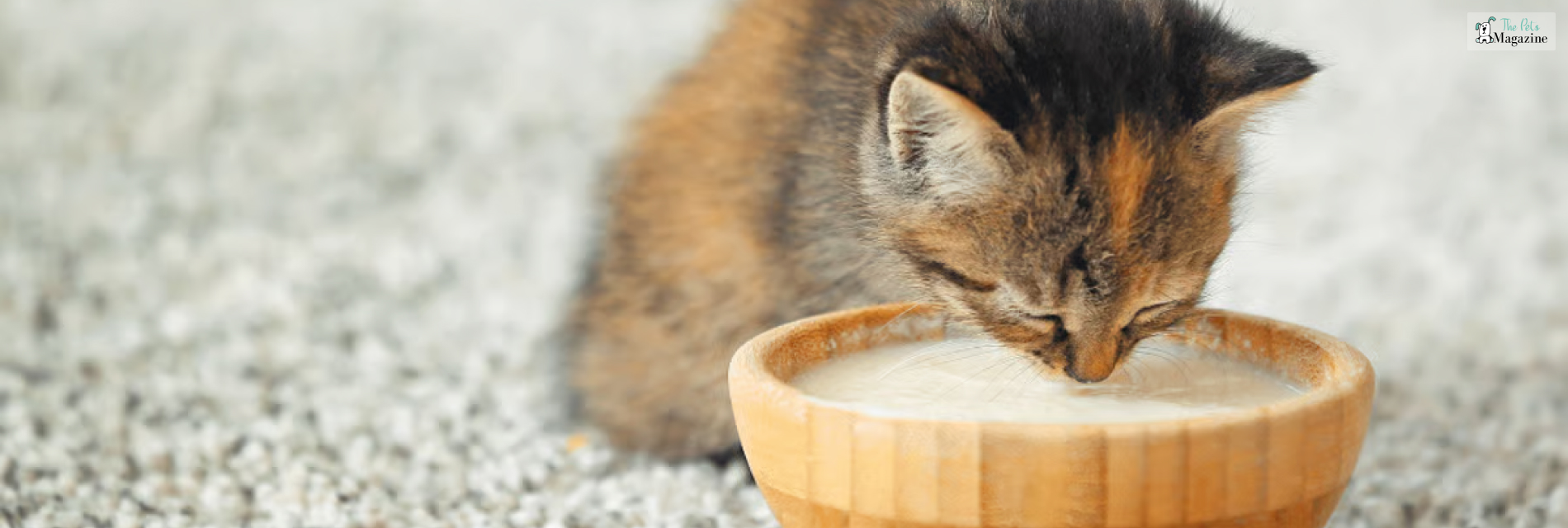
You may have heard people around you say that milk is good for cats and have seen them giving a bowl of cold milk to that stray cat that keeps visiting them. But when you give milk to your cat at home, they drink it up and then suffer from stomach aches. Are you starting to worry that you have got a weird kitty with a unique digestive system? Before you start panicking hear us out.
While many people actually believe that milk is good for cats, the truth is that it is just a myth just like rats and cheese. Most adult cats are actually lactose intolerant and their digestive system cannot handle milk. So why do people give milk to cats? Read on to find out.
Can Cats drink Regular cow’s Milk?
To answer simply, no, cats cannot drink regular cow’s milk. This is because as cats age, the small intestine of a vast majority of cats stops producing the enzyme lactase which is necessary for properly breaking down lactose, the sugar present in milk.
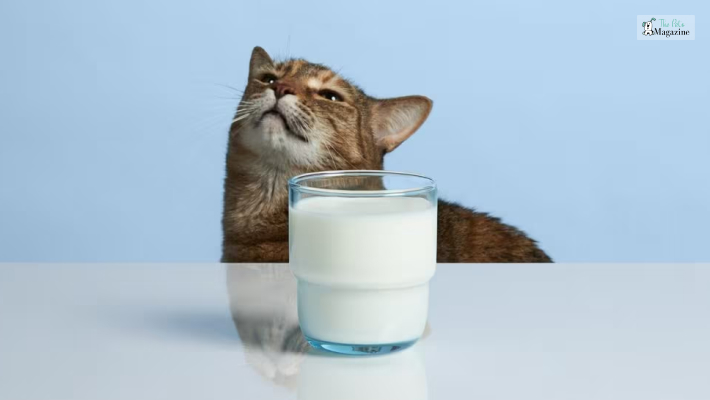
As a result, the digestive system of a cat cannot process milk or milk-based products efficiently and the cats become lactose intolerant. This is also what happens with us humans too and why so many of us are lactose intolerant. If a lactose-intolerant cat drinks milk, it can cause the following issues –
- Abdominal pain
- Swollen eyes
- Hair Loss
- Itchy Skin
- Vomiting
- Excessive gas build-up
- Bloating
- Diarrhea
- Weight Loss due to diarrhea and low appetite
- Dehydration due to diarrhea and vomiting
However, not all cats have a digestive system that is lactose intolerant. So the question then is can cats that are not lactose intolerant drink regular cow’s milk? The answer to this question is also no. This is because milk contains a lot of fat and most cats, especially indoor cats who have been neutered are at risk of becoming obese.
Hence even cats that are not lactose intolerant should not be given milk as part of their regular diet as it can cause them to gain a lot of unhealthy weight. Having milk on a regular can also cause digestive issues.
However some cats like drinking milk. There are several reasons for that –
- Cats love milk because of the high-fat content
- Cats prefer drinking milk to hydrate themselves because it is cold and refreshing.
- Cats like drinking milk because they find the smell and taste familiar and they can reconnect it with old, positive memories of when they used to drink their mother’s milk as kittens.
So should you give your cat milk? If your cat is not lactose intolerant and likes drinking milk, then you can give your cat a few spoonfuls of milk once or twice a week as a treat. If your cat is lactose intolerant, then you can give them lactose-free milk instead of regular cow’s milk.
What is Lactose-free Milk?
Lactose-free milk is cow’s milk that goes through a few extra steps of processing to remove most of the lactose present in the milk. The removal of lactose does not affect the nutritional value of milk in any way. Like regular milk, lactose-free milk will also contain protein, calcium, phosphorus, riboflavin, and Vitamin B12. However, it might taste a bit sweeter compared to regular milk.
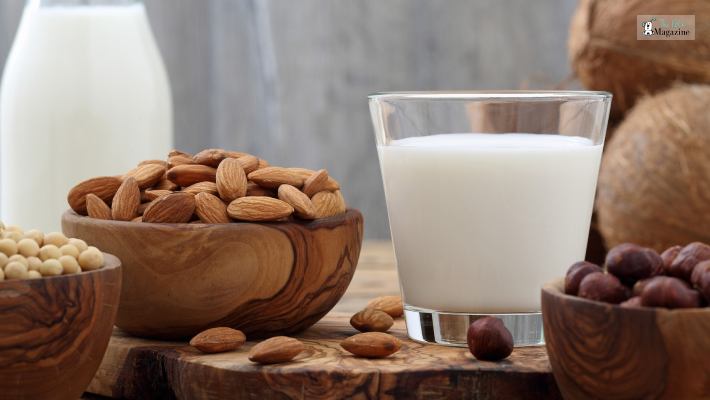
In addition, to make lactose-free milk, an enzyme called lactase is added externally to regular cow’s milk. As mentioned before, lactase is a type of enzyme that is present in the small intestine of humans and cats and which enables us to easily break down milk. The lactase present in these types of milk aids lactose-intolerant people to easily digest the milk.
Now that you know what is lactose-free milk, you are probably wondering can cats drink lactose-free milk. To know the answer, read on.
Can cats drink lactose-free milk?
Yes, cats can drink lactose-free milk that is made for human consumption. However, milk, even lactose-free milk does not meet the nutritional requirements of cats. So it is best to not give any milk to your cat, except in small amounts as a treat. Just like other cat treats, milk should only make up about 5-10% of your cat’s diet.
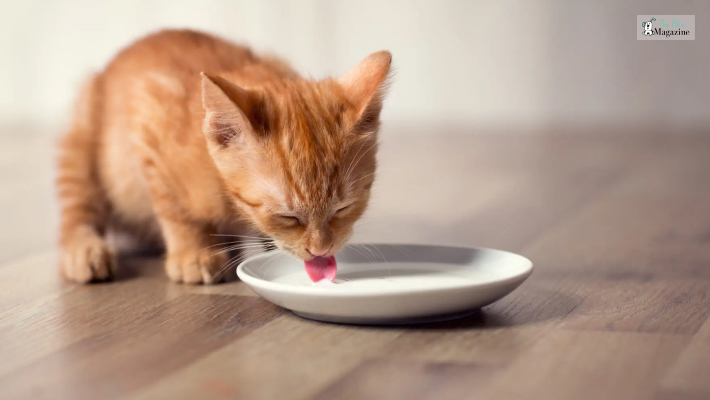
In some cases, cat parents give milk to their cats to promote hydration. But you need to remember that lactose-free milk is not a substitute for water in any way. But no liquid can be substituted for water. If for any reason your cat refuses to drink water, then you can offer them lukewarm chicken broth as a way to make them stay hydrated.
Other Alternatives of Cow Milk: Are They Safe for Cats
There are a lot of alternative options available for humans who are lactose-intolerant. But are these alternative options equally safe for our cats? Let’s take a look:
Goat Milk:
The lactose amount present in goat milk is slightly less compared to cow’s milk. This is one of the reasons why some people recommend feeding goat milk to cats as an alternative to cow milk. However, if your cat is lactose-intolerant or allergic to milk and milk products, then avoid giving goat milk to your feline friend.
Soy Milk:
While soy milk is lactose-free, it contains complex carbohydrates like stachyose and raffinose. A cat’s stomach does not have the enzymes necessary for breaking down these carbohydrates. As a result, drinking soy milk may cause gastrointestinal issues such as bloating, abdominal pain, diarrhea, and vomiting. In addition, being obligate carnivores, a cat’s digestive system is not equipped to handle any plant-based products like soya.
Almond Milk:
There are several reasons why cats should not drink almond milk. First of all, almond is a plant-based product and cats stomach is not designed to handle it because they are obligate carnivores. Almond milk is also high in calories and can cause cats to gain weight.
Final Thoughts
So can cats drink lactose-free milk? Yes, they can, but that does not mean that you should just offer them a big bowl of lactose-free milk whenever they start meowing at you. Lactose-free milk has no nutritional value for your cats and besides, drinking a lot of milk on a regular basis can cause gastrointestinal upset. However, you can give lactose-free milk as a treat twice or thrice a week to satisfy their cravings.
More From the Petsmagazine:






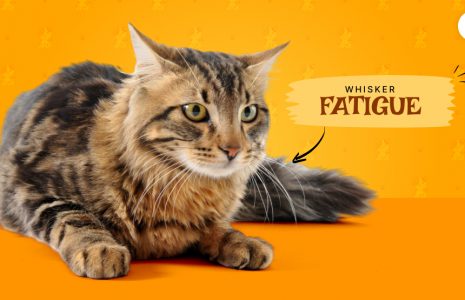
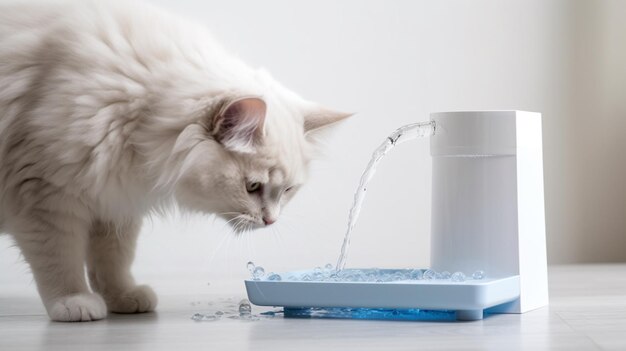
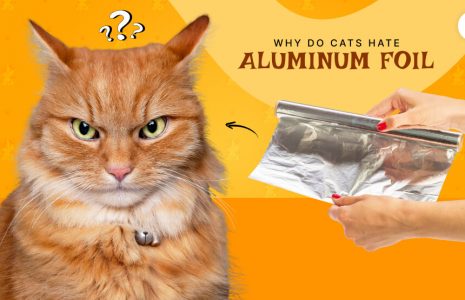
Leave A Comment